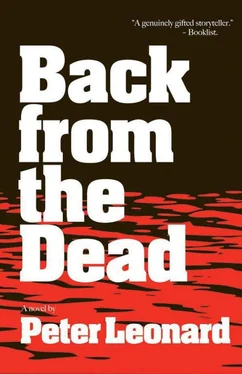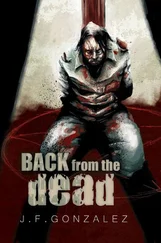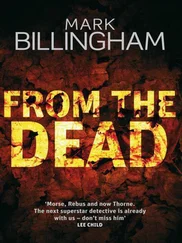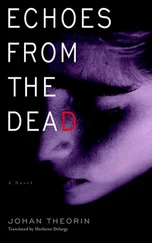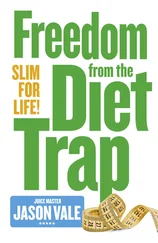But that was all moot now after he had received a call from his answering service telling him Ingrid Bookmyer had the information he had been waiting for. Zeller flew back to Munich and was waiting in Ingrid’s apartment the next evening, sitting in an easy chair in the darkness of the salon when he heard a key in the lock and saw the door open, casting light across the foyer. Ingrid entered the apartment, dropped her keys and purse on a table and turned on a lamp. She moved toward him but turned right into the kitchen. Zeller saw a light go on and heard the rattle of utensils. He heard the refrigerator open and close, the sound of a cork popping.
Ingrid came out of the kitchen into the dark salon and now Zeller turned on the lamp that was next to him on an end table. Ingrid, startled, dropped the wine glass. It hit and shattered on the hardwood floor.
Zeller said, “Where is Hess?”
“All I have is a post-office box in Pompano Beach, Florida.” Ingrid glanced down at the broken glass and the spilled wine moving in a stream across the floor.
“What does he want you to send him?”
“Money,” Ingrid said.
“Where is it?”
“In the desk. I will show you.”
Ingrid crossed the room, opened a drawer and took out a manila envelope. She came back and handed it to him. The envelope was addressed to Max Hoffman, PO Box 3456, Pompano Beach, FL 33064. “Max Hoffman, is this an alias, or an acquaintance?”
“Herr Hess did not explain.”
Zeller undid the clasp, tilted the envelope and out came five bundles of $100 bills held together with rubber bands. He picked up a bundle and shuffled one of the ends to make sure there were $100 bills all the way through.
“Why would Hess have fifty thousand U.S. dollars?”
“I don’t know.”
“I think you do.” Zeller reached behind his back and drew the silenced Makarov, training it on her.
“He did business with American companies and traveled frequently to the United States.”
Zeller could see in her eyes there was something else. “Where did Herr Hess get the money?”
“From an art broker in New York,” Ingrid said. “For the Durer.”
“It was a painting?”
“No, I think an illustration. I never saw it.”
“Where did Herr Hess get it?”
“All I know, it was during the war.”
This was getting interesting. He knew the Nazis had stolen thousands of paintings and artwork from occupied countries throughout Europe, from private collections and museums, from churches and synagogues. Zeller was intrigued by the possibility that other stolen paintings might exist. He thought of the Van Gogh that Hess’ wife had mentioned, and it occurred to him — this is what Braun was after. Hess’ alleged war crimes had nothing to do with it. Hess being on the run gave Braun the opportunity.
Zeller had searched Hess’ estate in Schleissheim, his place of business and his apartment. There were no paintings. Where would Hess store them? He would need a place with controlled temperature and humidity. The Nazis had hid their stolen treasures in caves and salt mines for that very reason. “Does Herr Hess own property in the country?”
“I would have no idea.”
“Does he own a chalet or a summer home? Is that where the other paintings are stored?”
Ingrid fidgeted with her hands. “I don’t know anything about other paintings. I only know Herr Hess had the Durer and brought it to a broker in New York. It was authenticated and sold.”
“Who is the broker?”
“A man in New York named Mauer.”
Zeller had seen the name in Hess’ address book. He glanced at the bundles of money in his lap and noticed there was something else in the envelope. It was a copy of Der Spiegel. Of course, she was sending him the article. “Does Hess know about this?”
“I told him,” Ingrid said. “Herr Hess wants to read it for himself.”
Zeller was trying to think if there was anything else he needed from Ingrid, and decided there wasn’t and raised the Makarov.
“I think I misjudged you,” Gerhard Braun said, “You are obviously the wrong man for the job.
“I will have Hess on the twenty-seventh of October,” Zeller said. “I’ll put him in a crate and mail him to you if that’s what you wish.”
“Well, you are confident, I’ll give you that.”
“It has nothing to do with confidence. It’s assurance.”
They were sitting on a stone bench in the English Gardens. Braun wore a long coat buttoned to the neck and leather gloves, smoking a cigar, the smoke mixing with clean cool late October air. Braun could see stands of tall trees that had lost their leaves, stretches of leaf-covered lawn and people scattered about on the walking paths. His driver sat behind the wheel of a black Mercedes sedan twenty meters away, watching them, smoking a cigarette with the window down.
“Where is Ernst?”
“Southern Florida.”
“I would have guessed South America. Join the old gang in Buenos Aires.”
“Too obvious.”
“How did you find him?”
“It’s what I do.”
Zeller was still boastful and over-confident and had not accomplished anything. Braun puffed on the cigar and blew out a stream of smoke.
“What do you want me to do with him?”
“Persuade Ernst to tell you where he hid the paintings.”
“The paintings?”
“A few works considered degenerate art by Hitler. Entarte Kunst, modern art that was deemed un-German or Jewish Bolshevist. Many of these paintings were confiscated and destroyed, but some survived.”
“What artists are you referring to?”
“Liebermann, Meidner and Freundlich,” Braun said, downplaying their artistic significance. Leaving out better-known names: Picasso, Matisse, Kandinsky, Klee and Chagall.
Two days later Zeller landed at Palm Beach International Airport. It was October 26, 1:30 p.m. He had been traveling for twenty-four hours. Walking out of the aircraft he was hit by the tropical glare and humidity. He put on sunglasses, took off his leather jacket and folded it over his arm.
Zeller picked up his suitcase at baggage claim, rented a car and drove to Pompano Beach. He had been thinking about his conversation with Braun. Zeller had no doubt the paintings Hess had looted or confiscated were worth millions, or why would Braun be wasting his time? Find the paintings and he would be rich.
He stopped at a Shell gas station on North Ocean Boulevard and asked for directions to the post office. “Which one?” the man behind the counter said. “There’re two. One’s on NE 16th, other’s on East Atlantic.”
By process of elimination, he found the post office where the package was being shipped. It was on East Atlantic Boulevard in a crowded shopping center. He had parked, gone in and checked the numbers on the boxes, a wall of them, and found Hess’ number, 3456. Business hours were posted on the glass door: 8:30 a.m. to 6 p.m.
The package was scheduled to arrive the next day, so Zeller decided to postpone his surveillance operation for the time being. He wondered if there was any significance to Hess using Max Hoffman as an alias. He went to the phone booth, checked the phone book and found two Max Hoffmans. One lived on NE 5th Street in Pompano Beach. The second lived in Lauderdale-by-the-Sea, 4612 El Mar Drive.
Zeller went to a petrol station and bought a map, located NE 5th Street, drove there and found Max Hoffman’s address and parked next to a vacant lot. The house, built on the Intracoastal, was pale yellow. A truck was parked down the street and a landscaping crew were busy trimming trees and cutting the lawn.
With the window down Zeller smoked a cigarette and watched boats cruise by on the waterway. He waited and watched for thirty minutes, smoked another cigarette. He started the car, shifted into drive and turned into Max Hoffman’s driveway. Zeller got out, walked to the front door and rang the bell. Waited and rang again. He tried to see in the windows flanking the door, but the blinds were closed.
Читать дальше
